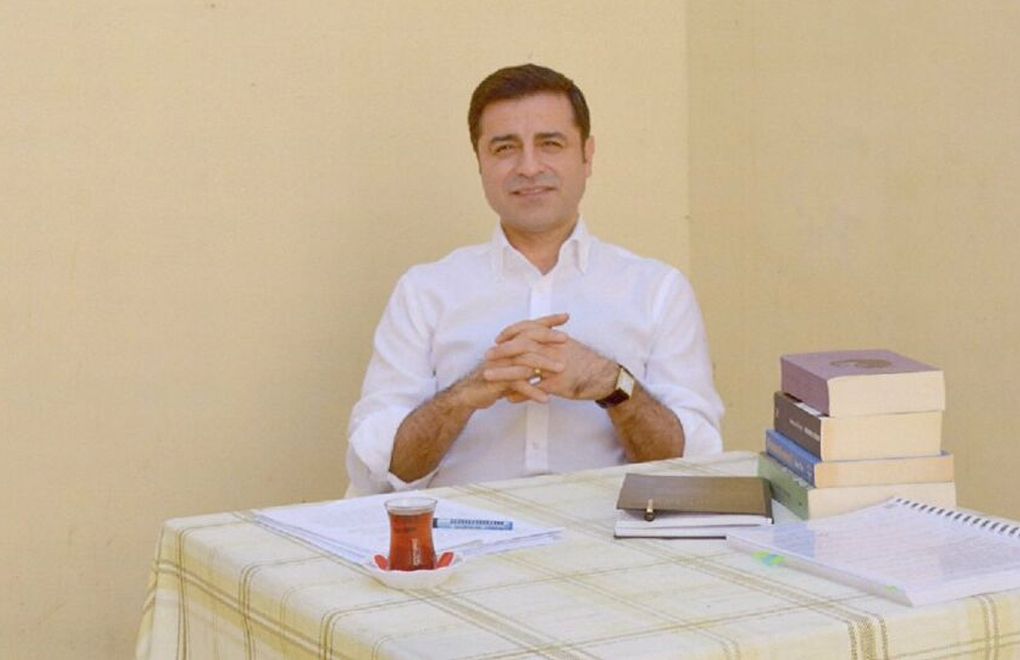The Committee of Ministers of the Council of Europe, which is responsible for overseeing the implementation of the European Court of Human Rights (ECtHR) rulings, has pronounced its interim resolution following its meeting on December 2, where it discussed Turkey’s failure to implement the ECtHR ruling of “immediate release” given for Selahattin Demirtaş, the former Co-Chair of the Peoples’ Democratic Party (HDP).
Adopted at the 1,419th meeting of the Ministers’ Deputies, the interim resolution has referred to his arrest and pre-trial detention from November 4, 2016 to December 7, 2018 and recalled that “domestic courts failed to give specific facts or information that could give rise to a reasonable suspicion that he had committed the offences in question and justify his detention.”
The Committee has also noted that “the way in which his parliamentary inviolability was removed by the amendment of Article 83 paragraph 2 of the Turkish Constitution on 20 May 2016, and also deficiencies in the reasoning of the courts in ordering the pre-trial detention, violated his rights to freedom of expression and to sit as a member of parliament.”
Referring further to the ECtHR ruling on Selahattin Demirtaş, the interim resolution has said that “the pre-trial detention moreover pursued an ulterior purpose, namely to stifle pluralism and limit freedom of political debate,” recalling that it constituted a violation of the Article 18 of the European Convention on Human Rights (ECtHR) in conjunction with Article 5/1.”
As indicated in the interim resolution of the Committee, “the nature of the violation under Article 18 left no real choice as to the measures required to remedy it, and that any continuation of the applicant’s pre-trial detention on grounds pertaining to the same factual context would entail a prolongation of the violation of his rights as well as a breach of the obligation on the respondent State to abide by the Court’s judgment in accordance with Article 46 paragraph 1 of the Convention.”
‘Assure his immediate release’
Accordingly, noting that Selahattin Demirtaş is currently arrested in pre-trial detention in connection with charges before the Ankara 22nd High Criminal Court (Assize Court), it has “expressed its profound concern that the applicant has been continuously deprived of his liberty.”
The Committee of Ministers has also
- reiterated that the argument of the Turkish authorities that the applicant’s current pre-trial detention falls outside the scope of the Court’s judgment was examined and rejected by the Court in its indication under Article 46, as well as by the Committee in its previous examinations based on the information available to it;
- underlined that the obligation of restitutio in integrum calls for measures to restore the applicant as far as possible to the position he would have enjoyed had these violations not occurred and that such measures should be compatible with the conclusions and spirit of the Court’s judgment, involving good faith on the part of the respondent State, which is of paramount importance where the Court has found a violation of Article 18;
- expressed the strong hope that the Constitutional Court concludes its examination of the applicant’s complaints in the shortest possible timeframe and in a manner compatible with the spirit and conclusions of the Court’s judgment.
- strongly urged again the authorities, in the meantime, to assure the applicant’s immediate release;
- decided to resume examination at its 1428th meeting (March 2022) at the latest.
Why Turkey obliged to abide by ECtHR rulings?
The ECtHR rulings are binding. Turkey is a party to the European Convention on Human Rights (ECtHR). In being a party to the ECHR, it accepts the authority of the Council of Europe and the ECtHR, pledging that it will abide by the rulings and resolutions of the administration.
These rulings are also binding as per Article 90 of Turkey’s Constitution. This article says that when fundamental rights and freedoms are concerned, international conventions are deemed primary.
With Article 46 of the ECHR regarding the “bindingness and execution of rulings” passed by the Grand Chamber of the ECtHR on December 22, the rulings have been definite and binding for everyone since 5 pm that day, when the article was published on the ECtHR website.
Therefore, Turkey does not have the chance to say, “I don’t execute the ECtHR rulings”. As Turkey is a party to the Convention, the rulings are binding and Turkey is obligated to definitely abide by them.
Trial of Selahattin DemirtaşSelahattin Demirtaş was detained on November 4, 2016. He was arrested and sent to Silivri Prison in İstanbul on the same day. He is still behind bars in Silivri. All his investigations, except for one, have been combined in a single file. The lawsuit filed at the Ankara 19th Heavy Penal Court has still not been concluded. As his request for release as part of this suit was rejected, his attorneys appealed to the Constitutional Court. In their application to the Constitutional Court on May 29, 2018, the attorneys requested that his application be reviewed with priority. However, the Court has not yet responded to the application. On June 26, 2018, his case was taken to the ECtHR. Shortly after this appeal to the ECtHR, the court announced its judgment in his second case. Tried in the case together with former HDP MP Sırrı Süreyya Önder, Selahattin Demirtaş has been sentenced to 4 years, 8 months in prison on the charge of “propagandizing for a terrorist organization” by the İstanbul 26th Heavy Penal Court. One month later, on October 25, 2018, his verdict of conviction reached the 2nd Penal Chamber of İstanbul Regional Court of Justice, the court of appeal. On November 17, 2018, the ECtHR announced that it would announce its judgment as to his application on November 20. The court of appeal swiftly reviewed the verdict of conviction of Demirtaş and started discussing it on November 19. On November 20, 2018, the ECtHR concluded that Demirtaş was “arrested with political motivations” and ruled for his release. The Ankara 19th Heavy Penal Court rejected his request for release on November 30, 2018, indicating that “his arrest was a moderate measure”. On December 4, 2018, the 2nd Penal Chamber of İstanbul Regional Court of Justice upheld his verdict of conviction. With this verdict, Demirtaş became an arrested convict. The attorneys of Demirtaş appealed again to the ECtHR on February 19, 2019, and requested that the issues not discussed, found inadmissible and not regarded as violation right be reviewed again. The government also appealed against the ECtHR verdict on Demirtaş. In its petition, the government also requested that the ECtHR review its ruling of right violation again. That being the case, the case of Demirtaş has been taken to the ECtHR Grand Chamber, which announced that it would discuss the application on September 18, 2019. The Ankara 19th Heavy Penal Court on September 2 ruled that Demirtaş should be released. His imprisonment continued because of a separate verdict for hs arrest. On December 22, 2020, the ECtHR Grand Chamber ruled for the immediate release of Demirtaş. On September 17, 2021, The Committee of Ministers of the Council of Europe, which is responsible for overseeing the implementation of the ECtHR rulings, stated that Demirtaş should be released and gave time to Turkey until September 30 to announce an action plan about the European court ruling. |






